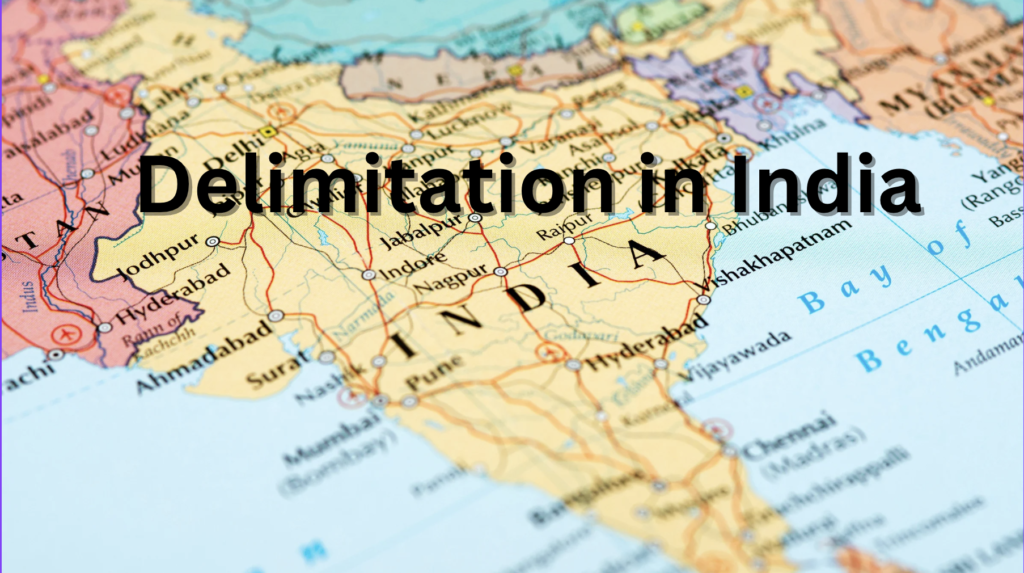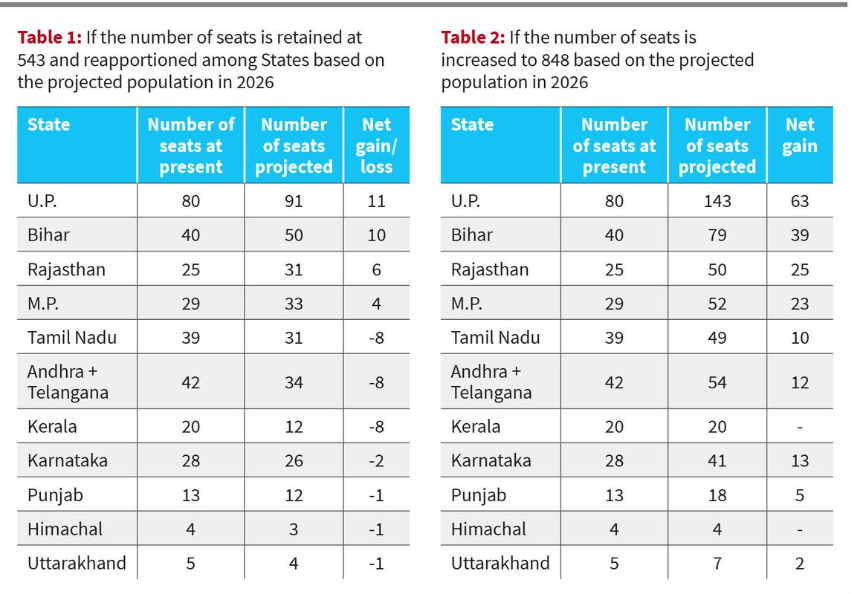
What’s Happening with Delimitation Right Now?
As of March 22, 2025, delimitation is stirring up a storm in India. Imagine this: Tamil Nadu’s Chief Minister M.K. Stalin gathered leaders in Chennai to say, “Hey, we’re worried!” Why? The next delimitation—set to happen after 2026—might shrink southern states’ seats in Parliament because they’ve done a great job controlling population growth. Meanwhile, northern states could gain more clout. Home Minister Amit Shah has promised no one loses seats, hinting at a “pro-rata” increase, but people are still scratching their heads over what that means. With the 2021 Census delayed (possibly wrapping up in 2025-26), the clock’s ticking, and tensions are high—think North vs. South drama straight out of a Bollywood plot!
What Does Delimitation Even Mean?
Straight from the Election Commission of India, delimitation is about “redrawing the boundaries of constituencies” for Lok Sabha and state assemblies based on the latest census. It’s like giving your house a new layout to fit everyone comfortably—making sure every voter’s voice counts equally. The government’s Delimitation Commission handles this, and it’s a big deal for fair representation.
How Did We Get Here? A Quick History
Delimitation’s story in India is like a rollercoaster:
- 1950s-70s: After every census (1951, 1961, 1971), we added seats—Lok Sabha grew from 494 to 543.
- 1976 Freeze: The government hit pause with the 42nd Amendment, locking seats based on 1971 numbers to encourage family planning. That freeze stretched to 2026 with the 84th Amendment.
- 2002 Update: We tweaked boundaries using 2001 data but didn’t change seat numbers.
Now, with the freeze ending soon, it’s time to rethink how we share power.
What Does the Constitution Say?
India’s Constitution lays the groundwork:
- Article 81: Caps Lok Sabha at 550 seats, tying them to population.
- Article 82: Says redraw seats after each census.
- Article 170: Covers state assemblies.
- 42nd & 84th Amendments: Kept things frozen since ’76.
It’s all about balancing democracy with India’s diverse states.
The Laws Behind It
- Delimitation Acts (1952-2002): Set up the Delimitation Commission—its word is final, no court can overrule it.
- J&K Reorganisation Act, 2019: Recently redrew seats in Jammu & Kashmir (done in 2022).
These rules keep the process legit and on track.
Why Should You Care About Delimitation?
Think of it as the heartbeat of democracy:
- It ensures your vote matters equally, no matter where you live.
- It decides how much say your state gets in Delhi.
- It reshuffles seats for marginalized groups like SCs and STs and Women.
- It even affects how money gets split between states.
Delimitation isn’t just politics—it’s about fairness and power.
What’s Got People Worried?
- North vs. South: Southern states like Tamil Nadu fear losing seats to northern giants like UP, even though they contribute big to India’s economy.
- Uneven Votes: Right now, an MP in Bihar represents 3.1 million people, while one in Kerala handles 1.75 million—talk about unfair!
- State Clashes: More seats up north could upset India’s unity.
- Census Mess: The delayed 2021 Census keeps everyone guessing.
It’s a tricky puzzle to solve!

What’s the Government Doing?
- 2002 Redraw: Updated boundaries with 2001 Census data.
- J&K Success: Added seats and reservations in 2022.
- Family Planning: Southern states’ efforts are now part of the delimitation debate.
The government’s trying, but there’s more to figure out.
What Do the Experts Say?
- 1955 Commission: Suggested limits on big states’ power.
- 2002 Team: Focused on boundary tweaks.
- Think Tanks (e.g., CSDS): Push for more Lok Sabha seats and a balanced Rajya Sabha.
Smart ideas worth listening to!
How’s Technology Helping?
- GIS Maps: Made J&K’s redraw super accurate.
- Data Crunching: Could make future plans fairer.
- Online Tools: Imagine sharing your thoughts on a government app!
Tech’s bringing delimitation into the 21st century.
What Can We Learn from the World?
- USA: Keeps its House at 435 seats, juggling them smartly.
- Europe: Gives smaller nations a voice in Parliament.
- Australia: Reviews boundaries regularly with an independent crew.
India could borrow a page or two!
What’s Next for Delimitation?
- Women’s Seats: The 2023 law ties more women MPs to delimitation.
- City Growth: Urban boom might mean more city seats.
- Climate Shifts: People moving due to floods or heat could shake things up.
The future’s full of surprises!
What Do People Think?
- South: “Don’t punish us for doing well!” (e.g., Stalin’s stance).
- North: “We deserve more seats for our numbers!”
- Everyday Folks & NGOs: “Make it fair and clear!”
- Experts: “Mix population with fairness.”
Everyone’s got a stake in this.
How Do We Fix This?
Here’s a game plan:
- Grow Lok Sabha: Add seats (say, to 848) so no one loses out.
- Set Limits: Cap any state’s power grab.
- Reward Effort: Factor in development, not just headcount.
- Go High-Tech: Use maps and AI for a clean process.
- Keep It Fair: Balance Parliament’s two houses.
- Talk It Out: Get all states on board before 2026.
Let’s make delimitation work for everyone!
UPSC Prelims Questions
(2012) With reference to the Delimitation Commission, consider the following statements:
- The orders of the Delimitation Commission cannot be challenged in a Court of Law.
- When the orders of the Delimitation Commission are laid before the Lok Sabha or State Legislative Assembly, they cannot effect any modification in the orders. Which of the statements given above is/are correct?
- a) 1 only
- b) 2 only
- c) Both 1 and 2
- d) Neither 1 nor 2
- Answer: c) Both 1 and 2
Explanation: The Delimitation Commission’s orders are legally binding (Delimitation Act) and cannot be challenged in court or modified by legislative bodies.
- Answer: c) Both 1 and 2
(2024) How many Delimitation Commissions have been constituted by the Government of India till December 2023?
- a) 3
- b) 4
- c) 5
- d) 6
- Answer: b) 4
Explanation: Commissions were set up in 1952, 1963, 1973, and 2002.
- Answer: b) 4
UPSC Mains Questions
- (2015) Discuss the significance of the Delimitation Commission in ensuring equitable representation in India’s electoral system. What are the challenges associated with the delimitation process in the context of federalism?Model Answer: The Delimitation Commission ensures equitable representation by redrawing constituencies based on census data, upholding “one vote, one value.” It adjusts SC/ST reservations and maintains democratic integrity. However, challenges include the North-South divide, where population control success penalizes southern states, risking federal imbalance. Delayed censuses and political resistance further complicate fair implementation. A balanced approach integrating development metrics and consensus-building is essential.
- (2020) Examine the implications of the freeze on the number of parliamentary seats since 1976 on India’s democratic framework. Suggest measures to address the emerging issues in the upcoming delimitation exercise.Model Answer: The 1976 freeze (42nd Amendment) aimed to incentivize population control but has led to malapportionment, with unequal voter representation (e.g., Bihar vs. Kerala). This undermines democratic equity and federal harmony. Measures include expanding Lok Sabha seats proportionally, capping state dominance, using technology for transparency, and incorporating development indices to reward population control, ensuring a fair post-2026 delimitation.
Share your thoughts below!”
